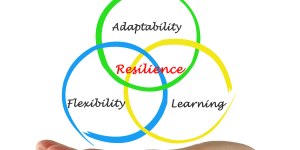In today’s fast-paced world, achieving success on your terms can feel like an elusive dream. But what if I told you there’s a way to unlock your full potential and transform your life for the better? Introducing “Transform Your Life: 15 Self-Development Strategies for Achieving Success on Your Terms” – a comprehensive guide designed to empower you with the tools needed to craft the life you truly desire. With an array of proven techniques and actionable tips, this guide will help you tap into the power of self-improvement, and pave the way for personal and professional growth. Whether you’re seeking to enhance your career, foster meaningful relationships, or simply gain a deeper understanding of yourself, these 15 strategies will provide a roadmap to success that can be tailored to your unique goals and aspirations. So, are you ready to embark on this transformative journey and unlock the best version of yourself? Let’s begin!
Defining success on your terms
Success means different things to different people. For some, it may be financial wealth, while for others, it might be achieving a healthy work-life balance or maintaining strong relationships. The first step in transforming your life is to define what success means to you personally. Developing a clear vision of your ideal life will help you set more meaningful and achievable goals, and ultimately guide your journey to self-improvement.
Take some time to reflect on what truly matters to you, what brings you happiness, and what aligns with your core values. Once you have a clear understanding of your definition of success, you’ll be better equipped to make intentional choices that align with your unique aspirations. Remember, success is subjective, and the only person who can determine your success is you.
It’s important to recognize that your definition of success may evolve as your priorities and circumstances change. Regularly revisiting and reassessing your definition of success will ensure that you’re always moving in a direction that aligns with your current values and aspirations.
The importance of self-awareness
Self-awareness, or the ability to understand and recognize your thoughts, emotions, strengths, and weaknesses, is a crucial aspect of personal growth and development. Being self-aware enables you to make more informed decisions, respond more effectively to challenges, and better understand how your actions impact others. Furthermore, self-awareness helps you identify areas of your life that require improvement, allowing you to take targeted steps toward achieving success.
To develop self-awareness, engage in regular self-reflection, and practice mindfulness. Journaling, meditation, and seeking feedback from trusted friends and mentors can also help increase self-awareness. Be open to acknowledging and accepting your strengths and weaknesses, and be willing to take responsibility for your actions and emotions.
As you develop greater self-awareness, you’ll likely notice a heightened sense of self-confidence and a greater ability to navigate challenges and setbacks. This newfound understanding of yourself will enable you to make more intentional choices, ultimately propelling you forward on your journey to success.
Quick tips:
• Take time to reflect on your definition of success.
• Regularly revisit and reassess your definition of success.
• Develop self-awareness by engaging in regular self-reflection and mindfulness practices.
• Acknowledge and accept your strengths and weaknesses, and take responsibility for your actions and emotions.
• Use your newfound understanding of yourself to make more intentional choices that align with your aspirations.
Setting effective and achievable goals
Goal setting is a powerful tool that can help you stay focused, motivated, and accountable as you work towards achieving success on your own terms. By setting specific, measurable, attainable, relevant, and time-bound (SMART) goals, you’ll be better equipped to make tangible progress in your personal and professional life.
Begin by setting a long-term vision for your life, and then break that vision down into smaller, actionable goals. This approach will help ensure that your daily actions are aligned with your overarching objectives. Be sure to regularly review and adjust your goals as needed, and don’t be afraid to set new goals as your priorities and circumstances change.
It’s also important to strike a balance between setting challenging goals and setting goals that are too ambitious. While it’s important to push yourself, setting unattainable goals can lead to feelings of frustration and disappointment. By setting achievable yet challenging goals, you’ll be more likely to stay motivated and committed to your self-development journey.
Quick Tips:
• Set specific, measurable, attainable, relevant and time-bound (SMART) goals.
• Break down your long-term vision into smaller, actionable goals.
• Regularly review and adjust your goals as needed.
• Strike a balance between challenging yourself and setting realistic goals.
Developing a growth mindset
A growth mindset, as popularized by psychologist Carol Dweck, is the belief that your abilities and intelligence can be developed through dedication and hard work. By embracing a growth mindset, you’ll be more open to learning from your experiences, taking on new challenges, and persevering through setbacks. This mindset is crucial for achieving success on your terms, as it empowers you to continually adapt and grow in the face of adversity.
To cultivate a growth mindset, focus on embracing challenges and viewing setbacks as opportunities for growth. Rather than avoiding difficult situations, seek them out as chances to learn and improve. Additionally, practice reframing negative thoughts and self-talk by focusing on what you can learn from each experience, rather than dwelling on your perceived shortcomings.
Surrounding yourself with positive influences and role models can also help foster a growth mindset. By engaging with others who embrace continuous learning and self-improvement, you’ll be more likely to adopt a similar outlook on life, ultimately propelling you forward on your journey to success.
Quick tips:
• Embrace challenges and view setbacks as opportunities for growth.
• Reframe negative thoughts and self-talk.
• Surround yourself with positive influences and role models.
• Cultivate an attitude of continuous learning and self-improvement.
The power of positive habits
The habits we engage in daily have a significant impact on our overall well-being and success. Positive habits, such as regular exercise, healthy eating, and effective time management, can help improve your physical and mental health, increase your productivity, and ultimately contribute to your overall success. Conversely, negative habits can hold you back and hinder your progress.
To develop positive habits, start by identifying areas of your life that require improvement and then set specific, achievable goals for each area. Next, create an action plan detailing the steps you’ll take to achieve your goals and implement your new habits. It’s important to be patient and consistent as you work to integrate these new habits into your daily routine, as lasting change takes time and dedication.
Remember that setbacks are a natural part of the change process, and it’s important not to become discouraged if you’re not able to immediately break free from negative habits. Instead, view setbacks as opportunities for growth and learning, and use them as motivation to continue working toward your goals.
Quick Tips:
• Identify areas of your life that require improvement.
• Set specific, achievable goals.
• Create an action plan to achieve your goals.
• Be patient and consistent as you work to integrate new habits.
• View setbacks as opportunities for growth and learning.
Building resilience and overcoming obstacles
Resilience, or the ability to adapt and persevere in the face of adversity, is a key component of achieving success on your terms. Life is full of challenges and setbacks, and developing resilience will enable you to navigate these obstacles with greater ease and confidence.
To build resilience, focus on developing a strong support network of friends, family, and mentors, as social connections can provide valuable emotional support during difficult times. Additionally, practice maintaining a positive outlook, and learn to view challenges as opportunities for growth and learning.
Another effective strategy for building resilience is to engage in regular self-care activities, such as exercise, meditation, and spending time with loved ones. By prioritizing your physical and emotional well-being, you’ll be better equipped to handle stress and more capable of bouncing back from setbacks.
Remember that building resilience takes time and practice, and it’s important to be patient with yourself as you work to develop this crucial skill. As you become more resilient, you’ll likely find that you’re better able to navigate life’s challenges and more capable of achieving success on your own terms.
Quick Tips:
• Develop a strong support network of friends, family, and mentors.
• Practice maintaining a positive outlook.
• View challenges as opportunities for growth and learning.
• Engage in regular self-care activities.
• Be patient with yourself as you build resilience.
Time management and productivity techniques
Effective time management and productivity techniques are essential for achieving success on your terms, as they enable you to make the most of your limited time and energy. By developing strategies to maximize your efficiency and prioritize your most important tasks, you’ll be better equipped to achieve your goals and make meaningful progress in your personal and professional life.
Some popular time management techniques include the Pomodoro Technique, time blocking, and the Eisenhower Matrix. Experiment with different strategies to find the one that works best for you, and be open to adjusting your approach as needed. Additionally, consider using productivity tools and apps, such as task managers and calendar apps, to help you stay organized and focused.
It’s also important to develop a healthy work-life balance, as overworking can lead to burnout and decreased productivity in the long run. Be sure to schedule regular breaks and downtime, and prioritize self-care activities to ensure that you’re able to maintain your productivity and overall well-being.
Quick Tips:
• Experiment with different time management and productivity techniques.
• Utilize productivity tools and apps.
• Develop a healthy work-life balance.
• Prioritize regular breaks and downtime.
• Schedule self-care activities to maintain your well-being.
Embracing continuous learning and personal growth
Continual learning and personal growth are essential for achieving success on your own terms, as they enable you to adapt to new challenges and opportunities. By consistently seeking out new knowledge and experiences, you’ll be better equipped to navigate the ever-changing landscape of your personal and professional life.
To embrace continuous learning, commit to regularly engage in activities that challenge and expand your knowledge and skills. This might include reading books, attending workshops or conferences, or enrolling in online courses. Additionally, seek out opportunities to learn from others, such as engaging in meaningful conversations with mentors or joining professional organizations.
Remember that personal growth isn’t limited to formal education and professional development; it also includes developing self-awareness, emotional intelligence, and resilience. By adopting a holistic approach to personal growth, you’ll not only expand your knowledge and skills but also become a more well-rounded and adaptable individual, ultimately increasing your chances of achieving success on your terms.
Quick Tips:
• Commit to continuous learning and personal growth.
• Engage in activities that challenge and expand your knowledge and skills.
• Learn from mentors and join professional organizations.
• Develop self-awareness, emotional intelligence, and resilience.
Enhancing emotional intelligence
Emotional intelligence, or the ability to recognize, understand, and manage your own emotions and the emotions of others, is a critical skill for personal and professional success. Developing emotional intelligence can help you navigate relationships more effectively, make better decisions, and respond more adaptively to challenges and setbacks.
To enhance your emotional intelligence, start by developing greater self-awareness and learning to recognize and understand your own emotions. Practice mindfulness and self-reflection to increase your ability to identify and process your emotions. Next, work on developing empathy and understanding the emotions of others. This can be achieved through active listening and putting yourself in other people’s shoes.
Finally, focus on improving your emotional regulation and communication skills. Learn to express your emotions healthily and constructively, and develop strategies for managing negative emotions, such as anger and frustration. By enhancing your emotional intelligence, you’ll be better equipped to navigate the complexities of your personal and professional life, ultimately increasing your chances of achieving success on your terms.
Quick tips:
• Develop self-awareness and understanding of your own emotions.
• Learn to recognize and understand the emotions of others.
• Improve your emotional regulation and communication skills.
• Practice mindfulness and self-reflection to increase your emotional intelligence.
Cultivating strong relationships and networking
Building and maintaining strong relationships is another key component of achieving success on your terms. Strong relationships can provide emotional support, open up new opportunities, and help you navigate challenges more effectively. Furthermore, networking and building professional relationships can help you advance your career and achieve your professional goals.
To cultivate strong relationships, focus on building genuine connections with others. Be authentic, listen actively, and show interest in other people’s lives and experiences. Additionally, make an effort to stay in touch with your contacts, whether through regular check-ins or attending networking events.
Remember that networking isn’t just about collecting business cards and making connections; it’s about building meaningful relationships with people who can support and challenge you on your journey to success. Be open to new opportunities and perspectives, and focus on building a diverse network of contacts from different industries and backgrounds.
Quick Tips:
• Focus on building genuine connections with others.
• Listen actively and show interest in other people’s lives and experiences.
• Stay in touch with your contacts through regular check-ins or attending networking events.
• Be open to new opportunities and perspectives, and focus on building a diverse network of contacts.
Utilizing mentorship and coaching
Mentorship and coaching can be powerful tools for achieving success on your terms. A mentor or coach can provide valuable guidance and support, helping you navigate challenges and make informed decisions. Furthermore, a mentor or coach can help you identify areas for improvement and provide constructive feedback to help you grow and develop.
To find a mentor or coach, consider reaching out to a trusted friend or colleague, attending networking events, or joining a professional organization. Be sure to approach potential mentors or coaches with a clear understanding of what you hope to gain from the relationship, and be open to their insights and feedback.
Remember that mentorship and coaching are two-way relationships, and it’s important to be receptive to feedback and willing to put in the work to achieve your goals. By utilizing these resources effectively, you’ll be better equipped to achieve success on your terms.
Quick tips
• Reach out to a trusted friend or colleague, attend networking events, or join a professional organization to find a mentor or coach.
• Approach potential mentors or coaches with a clear understanding of what you hope to gain from the relationship.
• Be receptive to feedback and willing to put in the work to achieve your goals.
Pursuing work-life balance and self-care
Achieving success on your terms requires more than just professional achievement; it also requires prioritizing your personal well-being and work-life balance. Burnout and stress can hinder your progress and ultimately lead to decreased productivity and satisfaction.
To achieve work-life balance, set boundaries around your work and personal life. Set aside time for self-care activities, such as exercise, meditation, and spending time with loved ones, and prioritize your physical and emotional well-being. Additionally, learn to say “no” to commitments that don’t align with your priorities and values.
Remember that achieving work-life balance is a continual process, and it’s important to regularly assess and adjust your priorities and commitments as needed. By prioritizing self-care and work-life balance, you’ll be better equipped to achieve success on your terms and maintain your overall well-being.
Quick Tips:
• Set boundaries around your work and personal life.
• Prioritize self-care activities, such as exercise, meditation, and spending time with loved ones.
• Learn to say “no” to commitments that don’t align with your priorities and values.
• Regularly assess and adjust your priorities and commitments as needed.
Measuring your progress and celebrating achievements
As you work towards achieving success on your terms, it’s important to regularly measure your progress and celebrate your achievements. This will help you stay motivated and committed to your goals, and provide a sense of accomplishment and satisfaction.
To measure your progress, regularly review your goals and assess how far you’ve come. Consider keeping a journal or tracking your progress using a goal-setting app. Additionally, seek out feedback from trusted friends, colleagues, or mentors to gain a better understanding of your strengths and areas for improvement.
When you achieve a goal or milestone, take time to celebrate your achievements. This can be as simple as treating yourself to a favourite meal or taking a day off to relax and recharge. Remember that celebrating your achievements isn’t just about acknowledging your successes; it’s also about cultivating a sense of gratitude and appreciation for the progress you’ve made.
Quick tips:
• Measure your progress by regularly reviewing your goals.
• Seek out feedback from trusted friends or colleagues.
• Take time to celebrate your successes and cultivate a sense of appreciation.
Conclusion and taking the next steps in your self-development journey
Transforming your life and achieving success on your terms requires dedication, hard work, and a willingness to embrace change and growth. By incorporating these 15 self-development strategies into your life, you’ll be better equipped to navigate challenges, achieve your goals, and ultimately craft the life you truly desire.
Remember to be patient and compassionate with yourself as you work to develop new habits and skills. Self-improvement is a continual process, and it’s important to focus on progress rather than perfection. Additionally, seek out support and guidance from trusted friends, colleagues, or mentors, and be open to learning from others.
By taking the first steps towards self-improvement today, you’ll be one step closer to achieving success on your terms and unlocking the best version of yourself.












